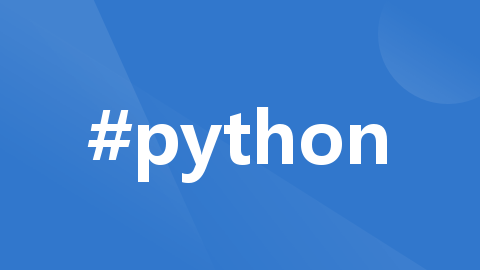android系统编译 局部_Android系统编译系统分析大全(二)
ifeq ($(SDK_ONLY),true)# ----- SDK for Windows ------# These configure the build targets that are available for the SDK under Cygwin.# The first section defines all the C/C++ tools that can be compile
ifeq ($(SDK_ONLY),true)
# ----- SDK for Windows ------
# These configure the build targets that are available for the SDK under Cygwin.
# The first section defines all the C/C++ tools that can be compiled under Cygwin,
# the second section defines all the Java ones (assuming javac is available.)
#(23)确定subdirs,这里包含的文件目录下的文件最终被编译,其中第一部分决定了一些C/C++工具被编译的子目录。
#第二部分为使用java编译器编译的目录。
#这是第一部分。
subdirs := /
prebuilt /
build/libs/host /
build/tools/zipalign /
dalvik/dexdump /
dalvik/libdex /
dalvik/tools/dmtracedump /
dalvik/tools/hprof-conv /
development/tools/line_endings /
development/tools/etc1tool /
sdk/emulator/mksdcard /
sdk/sdklauncher /
development/host /
external/expat /
external/libpng /
external/qemu /
external/sqlite/dist /
external/zlib /
frameworks/base/libs/utils /
frameworks/base/tools/aapt /
frameworks/base/tools/aidl /
frameworks/base/opengl/libs /
system/core/adb /
system/core/fastboot /
system/core/libcutils /
system/core/liblog /
system/core/libzipfile
# The following can only be built if "javac" is available.
# This check is used when building parts of the SDK under Cygwin.
#(24)调用which命令查看在环境变量中是否有javac这个命令,若是有的话,说明java编译器是已经安装的了,
#那么就包含这些目录,否则不包含这些目录,并抛出一个警告。
ifneq (,$(shell which javac 2>/dev/null))
$(warning sdk-only: javac available.)
#这是第二部分。
subdirs += /
build/tools/signapk /
dalvik/dx /
dalvik/libcore /
sdk/archquery /
sdk/androidprefs /
sdk/apkbuilder /
sdk/jarutils /
sdk/layoutlib_api /
sdk/layoutlib_utils /
sdk/ninepatch /
sdk/sdkstats /
sdk/sdkmanager /
sdk/layoutopt /
development/apps /
development/tools/mkstubs /
frameworks/base/tools/layoutlib /
external/googleclient /
packages
else
$(warning sdk-only: javac not available.)
endif
#(25)若当前HOST不是linux,那么还要要添加build/tools/acp这个目录。
# Exclude tools/acp when cross-compiling windows under linux
ifeq ($(findstring Linux,$(UNAME)),)
subdirs += build/tools/acp
endif
#(26)若SDK_ONLY不为真,且BUILD_TINY_ANDROID为真,那么添加一些文件,编译一个最小的系统.
else # !SDK_ONLY
ifeq ($(BUILD_TINY_ANDROID), true)
# TINY_ANDROID is a super-minimal build configuration, handy for board
# bringup and very low level debugging
subdirs := /
bionic /
system/core /
build/libs /
build/target /
build/tools/acp /
build/tools/apriori /
build/tools/kcm /
build/tools/soslim /
external/elfcopy /
external/elfutils /
external/yaffs2 /
external/zlib
else # !BUILD_TINY_ANDROID
#(27)若上面的两个条件(SDK_ONLY为真,BUILD_TINY_ANDROID为真)都不成了,那么就要包含$(TOP)下面
#的所有android.mk文件了。这才是最典型的编译.
#
# Typical build; include any Android.mk files we can find.
#
subdirs := $(TOP)
FULL_BUILD := true
endif # !BUILD_TINY_ANDROID
endif # !SDK_ONLY
ifneq ($(ONE_SHOT_MAKEFILE),)
# We've probably been invoked by the "mm" shell function
# with a subdirectory's makefile.
include $(ONE_SHOT_MAKEFILE)
# Change CUSTOM_MODULES to include only modules that were
# defined by this makefile; this will install all of those
# modules as a side-effect. Do this after including ONE_SHOT_MAKEFILE
# so that the modules will be installed in the same place they
# would have been with a normal make.
#(28)设定CUSTOM_MODULES,在后面会涉及到。非常重要。
CUSTOM_MODULES := $(sort $(call get-tagged-modules,$(ALL_MODULE_TAGS),))
FULL_BUILD :=
# Stub out the notice targets, which probably aren't defined
# when using ONE_SHOT_MAKEFILE.
NOTICE-HOST-%: ;
NOTICE-TARGET-%: ;
else # ONE_SHOT_MAKEFILE
#
# Include all of the makefiles in the system
#
# Can't use first-makefiles-under here because
# --mindepth=2 makes the prunes not work.
#(29)在这里调用findleaves.py查找在subdirs的包含的子目录下所有的Android.mk文件。
subdir_makefiles := /
$(shell build/tools/findleaves.py --prune=out --prune=.repo --prune=.git $(subdirs) Android.mk)
include $(subdir_makefiles)
endif # ONE_SHOT_MAKEFILE
# -------------------------------------------------------------------
# All module makefiles have been included at this point.
# -------------------------------------------------------------------
# -------------------------------------------------------------------
# Include any makefiles that must happen after the module makefiles
# have been included.
# TODO: have these files register themselves via a global var rather
# than hard-coding the list here.
ifdef FULL_BUILD
# Only include this during a full build, otherwise we can't be
# guaranteed that any policies were included.
-include frameworks/policies/base/PolicyConfig.mk
endif
# -------------------------------------------------------------------
# Fix up CUSTOM_MODULES to refer to installed files rather than
# just bare module names. Leave unknown modules alone in case
# they're actually full paths to a particular file.
#(30)提取用户定义的定义的模块,用户定义的模块,不一定在系统的所有模块中有定义,这里做了分类
#分为: known_custom_modules:用户定义了,并且在系统中有定义。
# unknown_custom_modules:用户没有定义,但系统系统中有定义。
known_custom_modules := $(filter $(ALL_MODULES),$(CUSTOM_MODULES))
unknown_custom_modules := $(filter-out $(ALL_MODULES),$(CUSTOM_MODULES))
CUSTOM_MODULES := /
$(call module-installed-files,$(known_custom_modules)) /
$(unknown_custom_modules)
# -------------------------------------------------------------------
# Define dependencies for modules that require other modules.
# This can only happen now, after we've read in all module makefiles.
#
# TODO: deal with the fact that a bare module name isn't
# unambiguous enough. Maybe declare short targets like
# APPS:Quake or HOST:SHARED_LIBRARIES:libutils.
# BUG: the system p_w_picpath won't know to depend on modules that are
# brought in as requirements of other modules.
define add-required-deps
#(31)这里调用了module-installed-files和add-required-deps函数,设定各个模块对各种库的依赖
$(1): $(2)
endef
$(foreach m,$(ALL_MODULES), /
$(eval r := $(ALL_MODULES.$(m).REQUIRED)) /
$(if $(r), /
$(eval r := $(call module-installed-files,$(r))) /
$(eval $(call add-required-deps,$(ALL_MODULES.$(m).INSTALLED),$(r))) /
) /
)
m :=
r :=
add-required-deps :=
# -------------------------------------------------------------------
# Figure out our module sets.
# Of the modules defined by the component makefiles,
# determine what we actually want to build.
# If a module has the "restricted" tag on it, it
# poisons the rest of the tags and shouldn't appear
# on any list.
#(32)设定Default_MODULES;
Default_MODULES := $(sort $(ALL_DEFAULT_INSTALLED_MODULES) /
$(CUSTOM_MODULES))
# TODO: Remove the 3 places in the tree that use
# ALL_DEFAULT_INSTALLED_MODULES and get rid of it from this list.
ifdef FULL_BUILD
# The base list of modules to build for this product is specified
# by the appropriate product definition file, which was included
# by product_config.make.
#
#(33)设定user_PACKAGES获取这个product的所有的modules 的list,这份list定义的module选择定义在
# product_config.mk这个文件以及这个文件包含的子*.mk文件中。
user_PACKAGES := $(call module-installed-files, /
$(PRODUCTS.$(INTERNAL_PRODUCT).PRODUCT_PACKAGES))
ifeq (0,1)
$(info user packages for $(TARGET_DEVICE) ($(INTERNAL_PRODUCT)):)
$(foreach p,$(user_PACKAGES),$(info : $(p)))
$(error done)
endif
else
# We're not doing a full build, and are probably only including
# a subset of the module makefiles. Don't try to build any modules
# requested by the product, because we probably won't have rules
# to build them.
user_PACKAGES :=
endif
#(34)模块设定:引擎类模块eng_MODULES,应用类模块user_MODULES,测试模块test_MODULES,调试模块debug_MOUDLE
# Use tags to get the non-APPS user modules. Use the product
# definition files to get the APPS user modules.
user_MODULES := $(sort $(call get-tagged-modules,user,_class@APPS restricted))
user_MODULES := $(user_MODULES) $(user_PACKAGES)
eng_MODULES := $(sort $(call get-tagged-modules,eng,restricted))
debug_MODULES := $(sort $(call get-tagged-modules,debug,restricted))
tests_MODULES := $(sort $(call get-tagged-modules,tests,restricted))
ifeq ($(strip $(tags_to_install)),)
$(error ASSERTION FAILED: tags_to_install should not be empty)
endif
#(35)从tags_to_install获取要安装的模块
#获取关系如下:tags_to_install
modules_to_install := $(sort $(Default_MODULES) /
$(foreach tag,$(tags_to_install),$($(tag)_MODULES)))
# Some packages may override others using LOCAL_OVERRIDES_PACKAGES.
# Filter out (do not install) any overridden packages.
overridden_packages := $(call get-package-overrides,$(modules_to_install))
ifdef overridden_packages
# old_modules_to_install := $(modules_to_install)
modules_to_install := /
$(filter-out $(foreach p,$(overridden_packages),$(p) %/$(p).apk), /
$(modules_to_install))
endif
#$(error filtered out
# $(filter-out $(modules_to_install),$(old_modules_to_install)))
# Don't include any GNU targets in the SDK. It's ok (and necessary)
# to build the host tools, but nothing that's going to be installed
# on the target (including static libraries).
#(36)剔除目标里包含的gnu里的tools,这是sdk里包含的工具类模块,是不能安装在目标里的。
ifdef is_sdk_build
target_gnu_MODULES := /
$(filter /
$(TARGET_OUT_INTERMEDIATES)/% /
$(TARGET_OUT)/% /
$(TARGET_OUT_DATA)/%, /
$(sort $(call get-tagged-modules,gnu)))
$(info Removing from sdk:)$(foreach d,$(target_gnu_MODULES),$(info : $(d)))
modules_to_install := /
$(filter-out $(target_gnu_MODULES),$(modules_to_install))
endif
# build/core/Makefile contains extra stuff that we don't want to pollute this
# top-level makefile with. It expects that ALL_DEFAULT_INSTALLED_MODULES
# contains everything that's built during the current make, but it also further
# extends ALL_DEFAULT_INSTALLED_MODULES.
#(37)对ALL_DEFAULT_INSTALLED_MODULES 的处理
ALL_DEFAULT_INSTALLED_MODULES := $(modules_to_install)
include $(BUILD_SYSTEM)/Makefile
modules_to_install := $(sort $(ALL_DEFAULT_INSTALLED_MODULES))
ALL_DEFAULT_INSTALLED_MODULES :=
endif # dont_bother
# These are additional goals that we build, in order to make sure that there
# is as little code as possible in the tree that doesn't build.
#(38)确保我们定义我们构建的模块是没有冗余的。
modules_to_check := $(foreach m,$(ALL_MODULES),$(ALL_MODULES.$(m).CHECKED))
# If you would like to build all goals, and not skip any intermediate
# steps, you can pass the "all" modifier goal on the commandline.
ifneq ($(filter all,$(MAKECMDGOALS)),)
modules_to_check += $(foreach m,$(ALL_MODULES),$(ALL_MODULES.$(m).BUILT))
endif
# for easier debugging
modules_to_check := $(sort $(modules_to_check))
#$(error modules_to_check $(modules_to_check))
# -------------------------------------------------------------------
# This is used to to get the ordering right, you can also use these,
# but they're considered undocumented, so don't complain if their
# behavior changes.
.PHONY: prebuilt
prebuilt: $(ALL_PREBUILT)
# An internal target that depends on all copied headers
# (see copy_headers.make). Other targets that need the
# headers to be copied first can depend on this target.
.PHONY: all_copied_headers
all_copied_headers: ;
$(ALL_C_CPP_ETC_OBJECTS): | all_copied_headers
#(39)files这个目标在这里是一个非常大的目标,包括moudules_to_install,modules_to_check,prebuilt等等
#前面所做的就是为这几个目标的正确生成。关系如下:droid依赖于droidcore,而droidcore依赖于files,如下,
#就是这几项的依赖的关系控制着整个项目的编译流程。
# All the droid stuff, in directories
.PHONY: files
files: prebuilt /
$(modules_to_install) /
$(modules_to_check) /
$(INSTALLED_ANDROID_INFO_TXT_TARGET)
# -------------------------------------------------------------------
.PHONY: checkbuild
checkbuild: $(modules_to_check)
.PHONY: ramdisk
ramdisk: $(INSTALLED_RAMDISK_TARGET)
.PHONY: systemtarball
systemtarball: $(INSTALLED_SYSTEMTARBALL_TARGET)
.PHONY: userdatap_w_picpath
userdatap_w_picpath: $(INSTALLED_USERDATAIMAGE_TARGET)
.PHONY: userdatatarball
userdatatarball: $(INSTALLED_USERDATATARBALL_TARGET)
.PHONY: bootp_w_picpath
bootp_w_picpath: $(INSTALLED_BOOTIMAGE_TARGET)
ifeq ($(BUILD_TINY_ANDROID), true)
INSTALLED_RECOVERYIMAGE_TARGET :=
endif
#(40)一下是整改项目的build动作,如果要把整个编译过程分成:配置和编译两部分的话,
#上面的所有的都是配置过程,下面的为编译过程。
#这里确定好要生成的子目标。
# Build files and then package it into the rom formats
.PHONY: droidcore
droidcore: files /
systemp_w_picpath /
$(INSTALLED_BOOTIMAGE_TARGET) /
$(INSTALLED_RECOVERYIMAGE_TARGET) /
$(INSTALLED_USERDATAIMAGE_TARGET) /
$(INSTALLED_FILES_FILE)
# The actual files built by the droidcore target changes depending
# on the build variant.
#这里开始编译。
.PHONY: droid tests
droid tests: droidcore
$(call dist-for-goals, droid, /
$(INTERNAL_UPDATE_PACKAGE_TARGET) /
$(INTERNAL_OTA_PACKAGE_TARGET) /
$(SYMBOLS_ZIP) /
$(APPS_ZIP) /
$(INTERNAL_EMULATOR_PACKAGE_TARGET) /
$(PACKAGE_STATS_FILE) /
$(INSTALLED_FILES_FILE) /
$(INSTALLED_BUILD_PROP_TARGET) /
$(BUILT_TARGET_FILES_PACKAGE) /
)
# Tests are installed in userdata.img. If we're building the tests
# variant, copy it for "make tests dist". Also copy a zip of the
# contents of userdata.img, so that people can easily extract a
# single .apk.
ifeq ($(TARGET_BUILD_VARIANT),tests)
$(call dist-for-goals, droid, /
$(INSTALLED_USERDATAIMAGE_TARGET) /
$(BUILT_TESTS_ZIP_PACKAGE) /
)
endif
.PHONY: docs
docs: $(ALL_DOCS)
.PHONY: sdk
ALL_SDK_TARGETS := $(INTERNAL_SDK_TARGET)
sdk: $(ALL_SDK_TARGETS)
$(call dist-for-goals,sdk,$(ALL_SDK_TARGETS))
.PHONY: findbugs
findbugs: $(INTERNAL_FINDBUGS_HTML_TARGET) $(INTERNAL_FINDBUGS_XML_TARGET)
.PHONY: clean
dirs_to_clean := /
$(PRODUCT_OUT) /
$(TARGET_COMMON_OUT_ROOT) /
$(HOST_OUT) /
$(HOST_COMMON_OUT_ROOT)
clean:
@for dir in $(dirs_to_clean) ; do /
echo "Cleaning $$dir..."; /
rm -rf $$dir; /
done
@echo "Clean."; /
.PHONY: clobber
clobber:
@rm -rf $(OUT_DIR)
@echo "Entire build directory removed."
# The rules for dataclean and installclean are defined in cleanbuild.mk.
#xxx scrape this from ALL_MODULE_NAME_TAGS
.PHONY: modules
modules:
@echo "Available sub-modules:"
@echo "$(call module-names-for-tag-list,$(ALL_MODULE_TAGS))" | /
sed -e 's/ *//n/g' | sort -u | $(COLUMN)
.PHONY: showcommands
showcommands:
@echo >/dev/null
更多推荐
 已为社区贡献3条内容
已为社区贡献3条内容









所有评论(0)